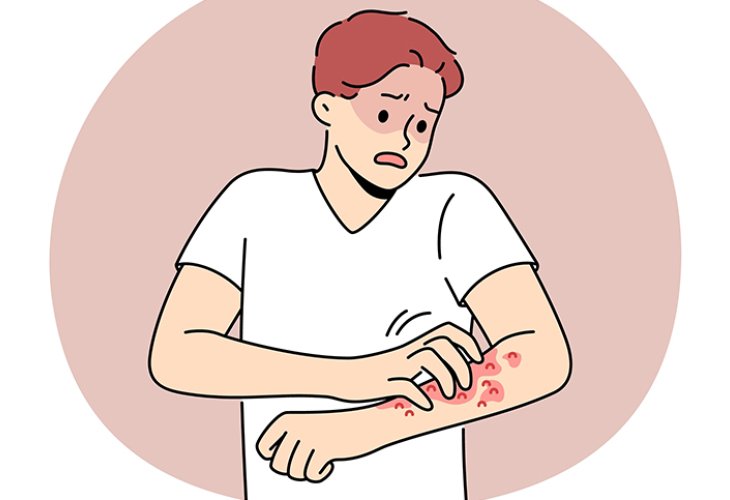Issues in the Bible
Who Declares Leprosy in the Bible? The Surprising Role of the Priest — and Possibly the Priestess
Why only a kohen’s words make a person impure, and how a woman of priestly lineage can fill that sacred role
 (Illustration: shutterstock)
(Illustration: shutterstock)The Torah devotes many laws and details to the metzora — a person afflicted with biblical leprosy (tzara’at). Such an individual must be quarantined, is ritually impure through contact, and is bound by numerous other regulations.
Who determines whether someone is truly a metzora? Surprisingly, not a doctor, nor even a rabbi or judge, but only a kohen (priest).
The Torah explicitly states that when a house shows signs of leprosy, its contents must first be removed — “they shall empty the house”, because impurity takes effect only when the kohen declares it: “and the priest shall say, ‘Unclean!’” Even if the symptoms are clearly visible, the impurity depends on the kohen’s words.
The Yerushalmi’s Enigma
An unusual passage in the Jerusalem Talmud is cited by Rabbi Chaim Kanievsky in his commentary on the Rambam (Laws of Tzara’at). The text says: “Can a woman show the appearance of leprous marks? Scripture says: ‘He shall be brought to the priest.’”
At first glance, this seems strange. Of course women can contract tzara’at — the Torah itself records that Miriam the prophetess was struck with leprosy, and the entire nation waited for her seven days until she was healed. So what is the Talmud’s question?
Modesty and Medical Practice in Antiquity
The Yerushalmi appears to refer to an ancient custom. When a woman needed to see a physician but wished to preserve her modesty, she would point to a statue or model in the doctor’s office, indicating her ailment without exposing herself — saying, for instance, “It hurts here.”
The Talmud clarifies that tzara’at is not a medical condition, but a spiritual status determined by Torah law. The declaration of impurity requires direct sight of the affliction by a kohen — not description, not report, and not a symbolic gesture.
Can a Woman Be the Kohen?
What happens if a woman herself has a leprous spot and cannot show it to a male kohen? Rabbi Chaim Kanievsky offers a fascinating answer: she may go to a female kohenet (woman of priestly descent).
The Torah does not state that only a male kohen may make such a ruling. In principle, a kohenet could inspect and decide, provided she has studied the intricate laws of nega’im (skin afflictions).
Alternatively, she could consult a learned sage. The Yerushalmi explicitly allows a non-expert kohen to ask a scholar for guidance: the scholar tells him the ruling, and the kohen then pronounces “tamei” (impure) or “tahor” (pure).
The key point is that the kohen or kohenet must personally see the lesion and verbally declare the status. They may rely on expert instruction, but the final pronouncement must come from the priestly mouth, for that is what gives the law its power.

